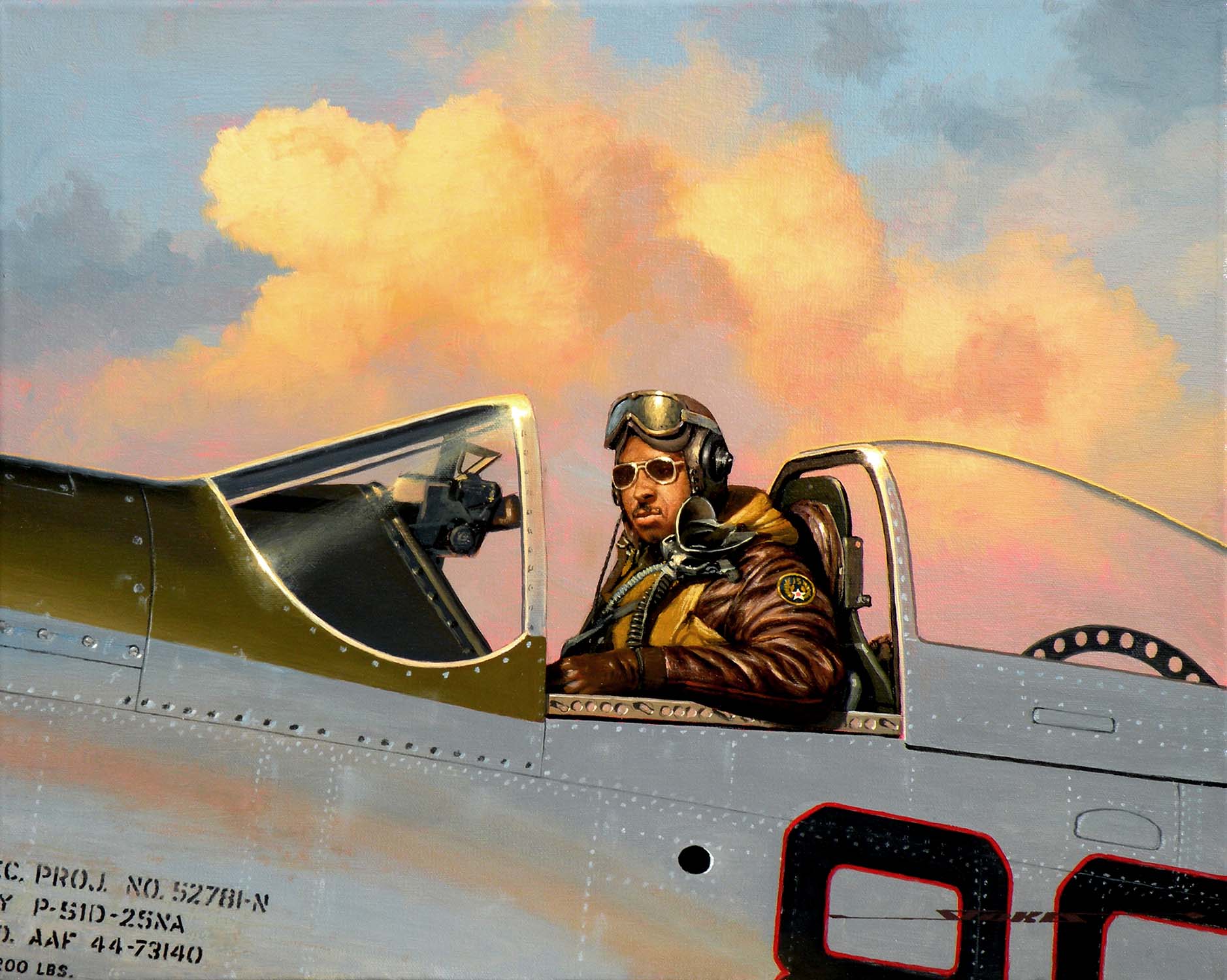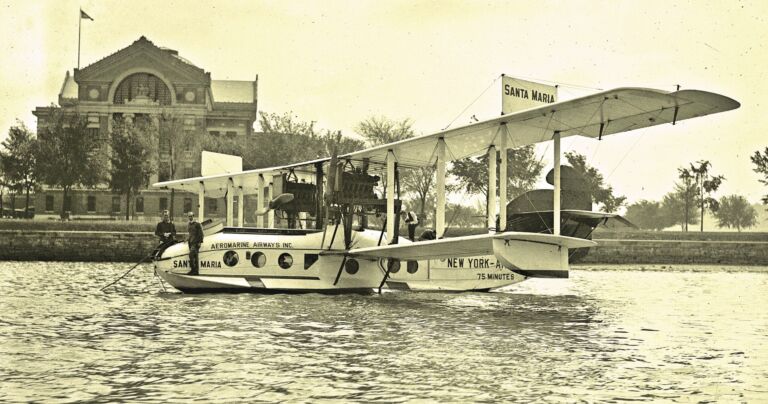In his senior year of college, Jack Holsclaw enrolled in the government sponsored Civilian Pilot Training Program and earned his pilot’s license. On October 5, 1942, he enlisted in the army as a private. He entered pilot training at Tuskegee Army Airfield as a member of class 43-G-SE. After completing his training, he received his wings and was commissioned as a 2nd Lieutenant on July 28, 1943. Lieutenant Holsclaw received advanced training at Selfridge Field near Detroit, Michigan before his squadron was deployed to Italy in December 1943.
Lieutenant Holsclaw was assigned to the 100th Fighter Squadron, 332d Fighter Group, an all-black pursuit squadron. Holsclaw named his favorite P-51 “Bernice Baby,” in honor of his wife.
On July 18, 1944, in an aerial battle over Italy, Holsclaw shot down two German fighters; for this action, he received the Distinguished Flying Cross. By December 1944, Holsclaw had completed 68 combat missions, nearing the limit of 70. Then he became Assistant Operations Officer, an important administrative position that included aerial mission planning. In January 1945, Holsclaw was promoted to captain.
Captain Holsclaw returned to the United States in June 1945 to serve as Assistant Base Operations Officer at Godman Field in Fort Knox, Kentucky.
Holsclaw went on to teach and conduct training duties. He was an instructor at the Air Force Reserve Officer Training Corps (ROTC) programs at Tuskegee Institute and then Tennessee State College, Nashville. From May 1962 to the end of 1964, he served as Chief of Training Division, Sixth Air Force Reserve Region, at Hamilton Air Force Base, California.
On January 1, 1965, Lieutenant Colonel Holsclaw retired and received the Distinguished Service Medal for his training accomplishments.





